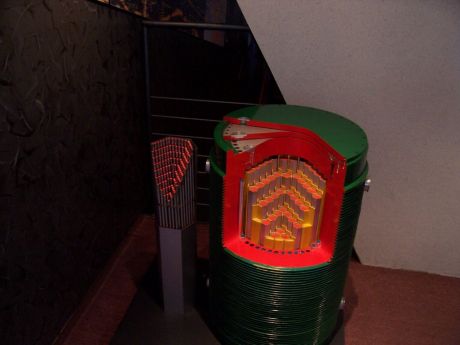Fuel cells convert chemical energy directly into electrical energy through an electrochemical reaction, a more efficient process compared to conventional electric power generation devices. The Technical University of Denmark is developing SOFCs consisting of thin layers of advanced ceramics (and for certain types, also metals).
Research and development work carried out ranges from fundamental investigations of materials and their structural properties to the manufacture of complete cells. The EU-funded Marie Curie project CFDSOFC (Multi-scale computational fluid dynamics modelling and optimisation of the state-of-the-art solid oxide fuel cells) aimed to investigate their electrochemical performance in detail. The fellow's efforts were channelled towards technical issues facing the commercialisation of the technology.
A 3D model was formulated to gain a better understanding of SOFCs' operation based on a detailed description of their geometry. The electrochemical reactions and transport phenomena were described using so-called 'source terms' in the governing equations for heat, mass, momentum, ion and electron transport.
Applying suitable boundary conditions, these conservation equations were solved with a multi-physics software. Specifically, COMSOL Multiphysics modelling software was used to solve the equations in 3D, using computational fluid dynamics for heat transfer and electrochemistry modules.
The CFDSOFC model was validated against experimental measurements of microstructural properties that are of importance for the cells' lifetime. The next step was to derive parameters for selected benchmark cases and obtain the optimal design for SOFCs.
The Technical University of Denmark has a long tradition of close collaboration with research institutes all over the world. After the CFDSOFC project completion, when the Marie Curie fellow has returned to the University of Bolu in Turkey, the cooperation is expected to continue in future research programmes.

